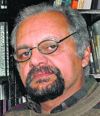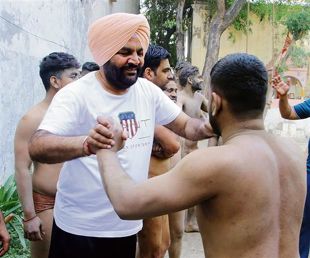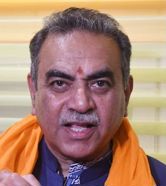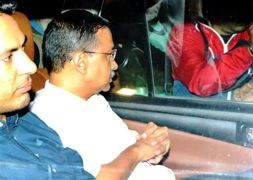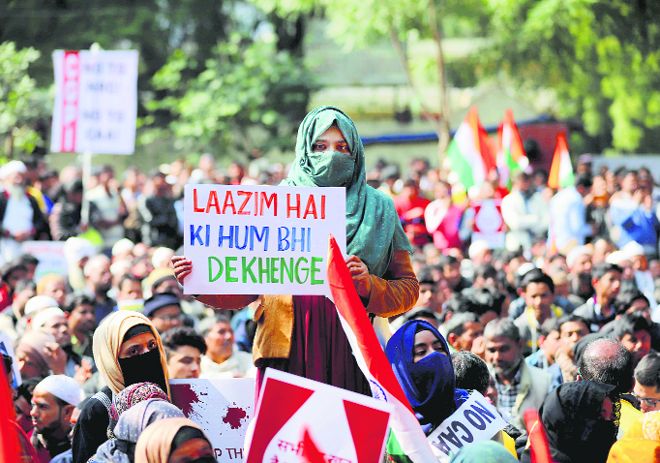
Only bulwark: The poet and the thinker teach generations to speak truth to power, infusing them with the optimism of a world of ethical awakening and free speech.
Shelley Walia
Former Professor Emeritus, English and Cultural Studies, Panjab University
And you are so forgetful of your past; is there no echo in your soul of your poets’ songs, your dreamers’ dreams, your rebels’ calls? — Emma Goldman
On this cold February morning, the vulgarity of the existing political discourse becomes the dreadful background of the thoughts of people across the world. It is difficult, indeed, to think of anything except the persistent struggle and hope for justice and human freedom. The overwhelming desire to do something this minute to stop the onward rush of foul-mouthed politics and degraded language makes it hard to sit still and think.
At such grotesque moments in history, it is always poetry that demonstrates its exacting responsibility in creating, in the words of Pete Seeger, “The right song at the right time which would change history.” The inspiration, the poetry, and the hope sooner or later finds its way into the hearts and minds of many who speak the language of resistance and dignity for all.
We stand at a moment when the free citizens of the land conjecture if the dreams of their forefathers have not been mocked by the power-hungry state that permits the dark clouds of indefensible intolerance and sectarian violence to shroud the dreams of many. The erosion of liberty and secular values echoes the bleaker times that await us. Faiz Ahmed Faiz’s lines from Subah-e-Azadi come to mind: “This mottled dawn/ This night-bitten morning/ No, this is not the morning/ We had set out in search of.” Or, the lines of Namdeo Dhasal, the Dalit poet, ring relevant in portraying contemporary decadence: “Yesterday they murdered Gandhi/ Now they want to put/ The whole nation to death/ Playing the politics of chastisement.” Few political poems strike such an ominous note.
The only bulwark lies in the poet and the thinker who form the mainstay of the intellectual and social life, teaching generations to speak truth to power, infusing the public with the optimism and promise of a world of ethical awakening and free speech. Any denunciation of songs of protest and liberation confirms a growing contempt and distrust of great poetry falsely accused of anti-nationalism or irreverence. The objection to literature is a flight from social and moral responsibility, a frightening truth about our so-called democracy and its hyper-masculinist ethno-nationalism.
Can the burning of books or the banning of poetry be legitimised for preserving a pure religious identity or thinking? The more one ponders on the issue, the more one realises the fragility of religious institutions as well as the vulnerability of political structures that unequivocally hold back free expression. As Rushdie asserts, “The idea of the sacred is quite simply one of the most conservative notions in any culture, because it seeks to turn other ideas — Uncertainty, Progress, Change — into crime.” Any view of art being sacrilegious is manifestly naïve and bigoted.
Ironically, it is the autocratic rule that puts down dissent, but it also in turn provokes wide social awakening. Liu Xiaobo, the Chinese human rights activist rightly says, “It is more dangerous to stop people’s mouths than to dam a river.” Similarly, Puneet Sharma's recent poem Tum Kaun Ho Be? is defiantly audacious in telling the state to mind its business as “what is between her (the country) and me, is somewhat personal.”
And poet Agha Shahid Ali seeks a world without religion or borders and reprimands the authoritarian government, “My memory is again in the way of your history.” He, like other poets of resistance, seeks a world without religion or borders. Castigating totalitarianism, he sings of deliverance from the blight of tyranny and oppression: “In the heart's veined temple, all statues have been smashed./No priest in saffron's left to toll its knell tonight.”
This is literature of witness, of the one who has been there and knows the torture of confinement and the harsh workings of state repression. It enables us to survive apocalyptic times through imagination. Auden explains this in his poem In Memory of W. B. Yeats: “Follow poet, follow right/ To the bottom of the night/ Still persuade us to rejoice.” By writing well, Auden argues, the poet offers an affirmation of life testifying to human greatness. If imagination survives, art survives, and if art survives, man survives. As Brecht writes in his play Galileo, “Nowadays, anyone who wishes to combat lies and ignorance and to write the truth … must have the courage to write the truth when truth is everywhere opposed; the keenness to recognise it, although it is everywhere concealed; the judgement to select those in whose hands it will be effective."
Poetry, therefore "is not a luxury," says Andre Lourde, the gay activist. "It is a vital necessity of our existence and predicates our hopes and dreams." Our words become our weapons and our songs of rebellion our defense against acts of inhumanity. The dreams of liberation from the shackles of bigotry resonate across the world in John Lennon’s song sung over half a century ago: “Imagine there’s no country/…Nothing to kill or die for/ And no religion too/ Imagine all the people living life in peace.”
It is literature, therefore, that unshackles and liberates, and in so doing acts as a historic catalyst of social and political change. When the forces, both from the left and the right, are getting increasingly aggressive and blinkered, when it has become difficult to exchange ideas with some affability, poetry and music make a resounding case for the virtue of liberal values of tolerance, of difference and dissent, of the sacred and the profane.
Why then should the state feel a certain sense of disquiet or unease at the poetry and songs of redemption and freedom? Evidently, the state apparatus tries its level best to extinguish the spark of rebellion; it is the artist who keeps it smouldering. In rebuking the state, the words of Agha Shaid Ali acquire a prophetic as well as a diagnostic quality: “If only somehow you could have been mine,/what would not have been possible in the world?”
Perhaps, great poetry is for all time both farsighted and analytical, showing us our future by revealing our present, if not our past.
Join Whatsapp Channel of The Tribune for latest updates.






